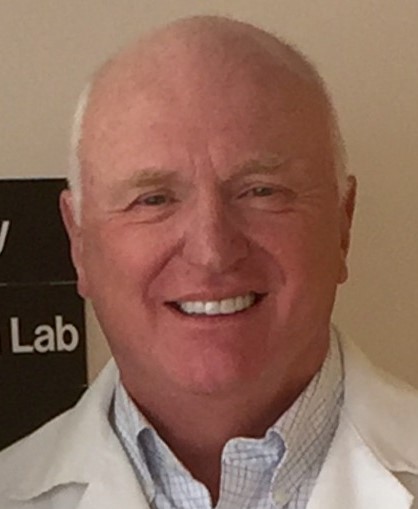Meet the 2024 Winner: York Miller, MD

During fellowship training, York Miller became interested in lung cancer as a disease he saw frequently in his practice and to which he could apply his training in genetics. Initially he identified genes within the chromosome 3p deletion that were inactivated by a second hit and cloned and characterized one such gene, aminoacylase-1. Over time, his research interests shifted from cancer cell genetics to susceptibility to the development of lung cancer and strategies to reduce that susceptibility. With the award of one of the two first SPORE in Lung Cancer grants to the University of Colorado in 1992, the potential to develop high risk cohorts for longitudinal follow up became available. This provided an opportunity to assess biomarkers of risk for incident lung cancer. The group leveraged an active Pulmonary Nodule clinic to assess diagnostic biomarkers as well as investigate the biology of premalignant lesions accessed during bronchoscopy. With the work and creativity of many faculty and fellow colleagues, the Colorado group described mutation, clonal expansion and migration of epithelial cells containing p53 mutations in premalignancy as well as the correlation of chromosomal instability with lung cancer risk. The group has taken several agents, including 13 cis retinoic acid, iloprost and pioglitazone, from preclinical models to Phase II trials with airway dysplasia as the primary endpoint. More recently, these investigators have focused on potential mechanisms determining whether central and peripheral premalignant lesions either spontaneously regress or persist and progress, identifying robustly functional epithelial progenitor/stem cells and antigen presentation as predictive of regression. They used these findings as a basis to initiate and complete the first immunoprevention trial for central airway premalignancy and to further understand the mechanisms by which prostacyclin analogs improve airway dysplasia in former smokers. A central theme of this work is understanding natural reparative processes in the lung and developing strategies to augment them and prevent the evolution of premalignancy to cancer.
Dr. Miller is the Thomas L. Petty Endowed Chair in Pulmonary and Critical Care at the University of Colorado School of Medicine and a Staff Physician at the Rocky Mountain Regional Veterans Affairs Medical Center. He has served the American Thoracic Society as Deputy Editor of the American Journal of Respiratory and Critical Care Medicine, Associate Editor of the American Journal of Respiratory Cell and Molecular Biology as well as various committees. He served as co-Principal Investigator of the Colorado SPORE in Lung Cancer and Leader or co-Leader of the University of Colorado Cancer Center Lung, Head and Neck Cancer Program for 25 years each. He was elected to the American Society for Clinical Investigation in 1990 and has had grant funding from the National Cancer Institute, National Heart, Lung and Blood Institute, the Department of Veterans Affairs, the Department of Defense, and Parker B. Francis, LUNGevity and V Foundations. Dr. Miller is extremely fortunate to work with and learn from many creative fellow and faculty scientists.
Description:
The award will be given to an individual who has made outstanding scientific contributions in clinical, translational, or laboratory-based research relevant to the field of thoracic oncology and/or exemplary service to the Assembly through education of the lung cancer community and program development. This award is intended for an established, internationally recognized individual with a record of sustained exemplary achievement in the areas of Assembly interest.
Nominees must be a TOA primary member. We encourage nominations of diverse nominees in all dimensions, including gender, sexual orientation, race/ethnicity, geographic residence, country, area of focus and primary occupation. The nomination package must include a 1-page letter from a member of the Assembly describing the candidate’s scientific contributions, teaching/mentorship/educational contributions, and leadership in TOA and ATS activities and why the award is merited. The candidate’s curriculum vitae must also be included with the nomination packet.
Awardees will be recognized with a framed certificate at the annual TO Membership Meeting during the ATS International Conference.
Criteria:
- Must be a TOA primary member
- Must not have received a similar Lifetime Achievement award from TOA or another ATS Assembly
Scoring:
Applicants are scored on the following criteria using a 1-5 rating system (5 = best) across the following categories:
- Scientific Contributions/ Products
- Leadership in Assembly and ATS Activities (administrative, committees, workshop, document development, promoting diversity)
- Teaching/ Mentoring/ Educational Contributions
View Previous Award Recipients
2023- Steven M Dubinett, MD
2022 - Lynn Tanoue, MD, MBA
2021 -Pierre Massion, MD
2020 - Gerard A. Silvestri, MD
2019 - M. Patricia Rivera, MD
2018 - Michael K. Gould, MD, MS
2017 - Charles "Cap" Powell, MD
2016 - Frank C. Detterbeck, MD
2015 - James R. Jett, MD



